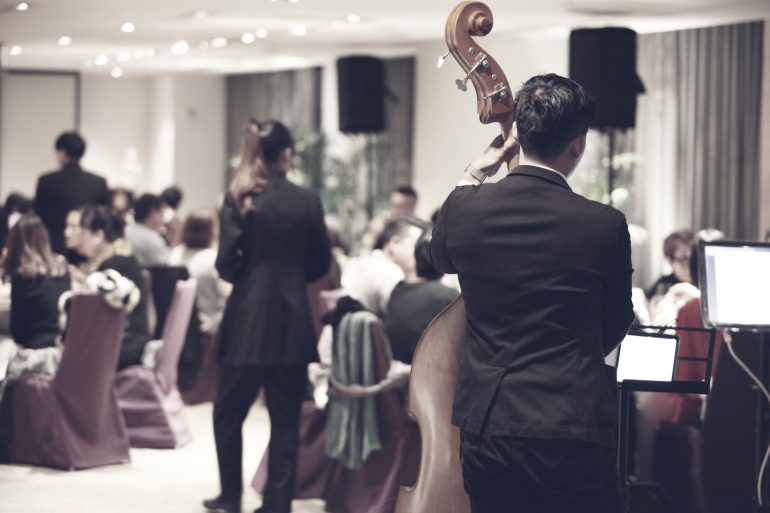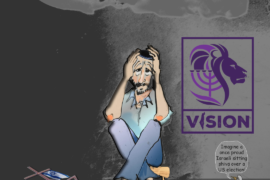Liberalism is becoming less fashionable every day.
Looking at the situation realistically makes it easy to understand why. Liberals are an out-of-touch elite that simply refuses to acknowledge and address the presence and growth of a populist majority who doesn’t share the sensibilities of the ruling class.
A simple metaphor
Imagine we are attending an exclusive cocktail party to which a select few (the liberals) are invited. We get dressed up, take a hot shower after work, make the effort to shave, put on some nice clothes. Polish our shoes. We get to the cocktail party. The pianist is playing Chopin. Couples are dancing.
But some unruly people (the populists) who managed to sneak in are disturbing the jazzy atmosphere. They are cursing, spitting, pushing their way around. Stepping on our shoes. Making us feel uncomfortable. They are making demands and reaching for the tiny salmon sandwiches and glasses of rosé. Some of them smell bad. They are moving around, getting closer and closer to the tables where the invited attendees are sitting, moving their hands in wild gestures.
Why are they doing this? Why are they making us feel uncomfortable? Can’t they just disappear and allow us to sip our wine and enjoy the company of our friends? They’re disturbing our peace. They’re ruining our party but their numbers keep growing. The party is on the verge of collapse – you can only pretend for so long that all is normal when the group causing the commotion is gradually becoming a majority. Why has this unruly majority caused trouble? What are the roots of the problem?
Back to reality (or not)
The New York Times in the United States, Der Spiegel in Germany, and The Guardian in England are all proud publications of the upper middle class – the self-satisfied bourgeoisie that is completely detached from the real life experiences of the lower-income majority because their incomes haven’t declined in recent years and their secure neighborhoods rarely expose them to violent crime. They have all bemoaned the presence of those unwanted guests – the populist majority – in their pages. Their editorials have been an accurate barometer: reflecting the anguish and angst experienced by the upper middle class at the sight of unhygienic guests disrupting their party. And, as expected, these publications have generally been blind to the source of the problem, preferring to demonize the undesirable guests, even as they gradually become the majority.
The easiest response to the predicament, as always, is just to hope it’ll go away. Convincing oneself that the problem is temporary, that the unwanted guests will learn to behave themselves or just leave, or that they are a “basket of deplorables,” an uneducated, ignorant public. The populists and their followers may be “dumb” and “deplorable” but their numbers are not getting smaller.
When speaking of Donald Trump’s supporters, Hillary Clinton said “[n]ow some of those folks — they are irredeemable, but thankfully they are not America.” But November 4, 2016 showed that they actually were America when Trump became the 45th president of the United States.
In the case of Brexit, the British voted to leave the European Union and protect their borders from an influx of young refugees from the Middle East. Most British voters wanted their sovereignty back from Brussels. The Guardian, however, was unimpressed, possibly since its readers are not from the working class. It frequently gave its microphone to Tony Blair, who said that Brexit voters may change their minds and make what he considers to be the right choice. The economic condition of the so-called populists’ supporters has generally deteriorated in recent years. They aren’t elite, they aren’t posh. They have a different idea of what “the right choice” is.
In Germany, Der Spiegel perfectly depicts the view held by the dying center while being equally blind as to why the center is dying. In an article with the proper doomsday scenario entitled Liberal Democracy Is Under Attack, Der Spiegel’s staff write that the tsunami unleashed by Brexit “is combined with the desire to shake off the corset that allegedly makes life in the West anything but free. All the laws, rules, decrees and contracts that dictate to people, companies and entire countries how to behave. What they are allowed to say and what not. What they can buy and what is off limits. How things may or may not be produced. This desire to apply a new set of self-made, simpler rules to the world is feeding the popularity of the autocratically minded.”
In other words, the “primitives” are winning. When one reads the article, one can almost physically touch the angst felt by the writers who are in panic over the rise of autocrats around the world, from Russia’s Putin and China’s Xi and Turkey’s Erdoğan to Hungary’s Orban and Poland’s PiS. It is remarkable how Der Spiegel is deeply distraught by the supposed corruption and violence of these so-called autocrats, as if the current political institutions in place in Germany and elsewhere in the West are immune to corruption (note Siemens’ bribery scandal whose case was shut down after it simply paid off, a luxury not afforded to the average citizen, or the power of lobbies over the democratic decision making abilities of Congress) or violence (consider the violent wars unleashed by the West against Middle Eastern countries and the military support provided by Germany to enable them).
Life is getting difficult for the posh party attendees:
- In Turkey, a majority – albeit a smaller one than previously – just re-elected President Recep Tayyip Erdoğan, head of the AK (Justice and Development) party. After decades of rule by an affluent secular elite that looked at the rural majority with disdain and forcibly suffocated its traditions, the rural peasantry pushed back and voted for what it sees as its legitimate representative. Erdoğan gave his people dignity and that is why they voted for him.
- In Italy, a majority placed in power the anti-establishment parties. Matteo Salvini‘s League and the 5-Star movement joined forces. The new government agreed on greater social spending, tax cuts and an end to declining pensions. Salvini made it clear he will not be shy about expressing the wishes of most Italians to end the massive influx of refugees into the country. In municipal elections, Salvini’s League has just seen major gains in a show of support by the public for his defiant stance towards Brussels and Malta.
- In Hungary, the public re-elected Victor Orban of the Fidesz Party to power several months ago. He was seen as a guardian of the country’s Christian roots and as a defender against Brussels’ undemocratic assaults.
- In Austria, the public voted for the 31-year-old Sebastian Kurz in October 2017. The Austrians did not believe in free handouts to refugees and wanted greater freedom from taxes.
For countries affected by growing unemployment and mass immigration, tighter wages and the ever-increasing cost of living, the afflicted majority is pushing back and letting go of liberalism’s niceties. People are tired of pretending everything is normal when things are not. And people often seek strongmen to deliver when the system has failed. The doctrine of liberalism – live and let live, combined with capitalism’s focus on pursuing individual goals, only holds traction during economic prosperity. But when there is no security and the masses are struggling to survive, most people become less tolerant of one another.





